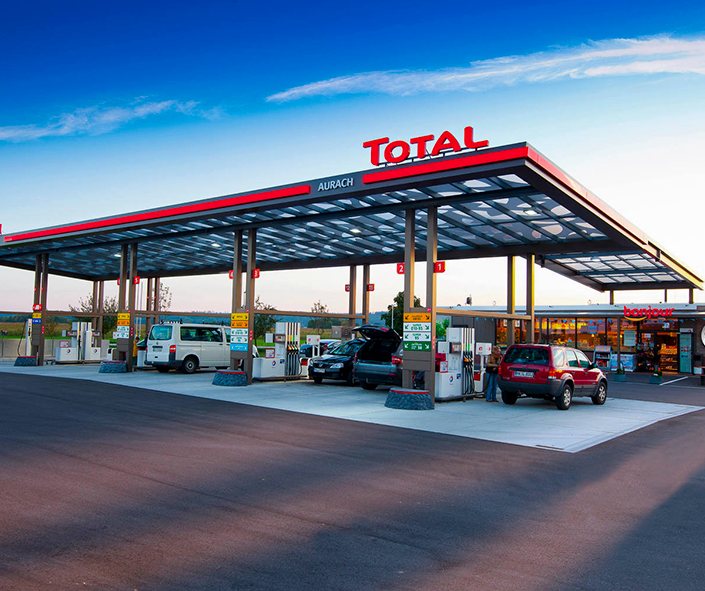Fuel retailers have been absorbing huge losses as a result of unexplained fuel under-deliveries from a major oil marketing company (OMC).
To make matters worse, dealers narrated to the Nairobi Law Monthly (NLM) how Total Kenya has regularly refused to take responsibility for the theft of fuel during delivery, and ignored their complaints.
In one of the complaints dated January 2019, the Kenya National Petroleum Dealers Association (KENAPEDE) in ‘A Summary of the Main Issues Facing Total Kenya Dealers’ and addressed to Edward Kinyua of the Energy and Petroleum Regulatory Authority (formerly known as Energy Regulatory Commission) says their complaints have always fallen on deaf ears.
“The losses on deliveries are due to under-loading at the depot by Total Kenya staff and theft by transporters contracted by Total Kenya,” the association’s secretary general Anthony Kuria wrote in the letter.
He continued, “Even though dealers often complain about these losses and also provide statistical and physical proof of theft, there has been no sign of compensation by Total-Kenya. Complaints are generally brushed under the carpet with no replies given, and end with doctored analyses, contradictory reports and threats of terminations if a dealer gets too persistent.”
While the OMC refuses to compensate dealers, it, on the other hand, gets compensated by EPRA for losses, and also has insurance cover.
Data that NLM has seen shows huge under deliveries which dealers say have deprived them of any meaningful profits given that the OMC had also introduced new charges not sanctioned by EPRA, thus eating into their margins further.
Under EPRA regulations, there are acceptable levels of losses which are capped at 0.3 percent for diesel and kerosene both for delivery and operational losses, and 0.5 percent for super petrol. But the data that NLM has seen has delivery losses alone as high as 4.7 percent.
For instance, a dealer who ordered 4,000 litres of diesel in June 2019 ended up getting 3,842 litres, a loss of 159 litres, or 3.98 percent. Another dealer in July 2019 had ordered 11,000 litres but what was delivered was 313 litres less, or 2.85 percent less. In October 2019, a dealer who had ordered for 9,000 litres of diesel ended up receiving 139 litres less, or a loss of 1.54 percent.
Regarding super petrol, a dealer in May 2019 ordered for 10,000 but received 164 litres less (1.64 percent loss). In October 2019, a dealer ordered for 4,000 litres but received 187 litres less – equivalent to a 4.7 percent loss. The data only covers the 2019 period but dealers said the theft has only gotten as Total grows bold through threats and intimidation.
“The fuel losses are imposed on the dealer yet the dealer has no involvement in the dispatch and transport of the fuel that the petroleum giant oversees. Why should the dealer bear these costs?” wondered one dealer who spoke to NLM on condition of anonymity for fear of reprisals from the OMC.
A loss of 300 litres is equivalent to Sh33,600 per order. Most stations order twice weekly. That equates to Sh268,800 per month, and a cool Sh3.2 million loss per year.
Unending complaints to Total by its dealers usually fall on deaf years.
Intimidation and coercion
In some cases, the OMC and the contracted transporters have blamed the weather for the unexplained losses but the quantities involved appear too high. The data NLM received covers stations in Nairobi and which receive their supplies from Total’s Nanyuki Road depot which is not more than 30 kilometres to petrol stations within Nairobi.
Some of the losses have reflected on Total’s Jambo System suggesting that the losses are as a result of under loading at the depot.
As complaints have piled up, EPRA which has often been seen as toothless in disciplining the OMCs, wrote to the Department of Weights & Measures under the Ministry of Industrialisation calling for harmonisation of volume measurements for petroleum products.
The letter appears to shift blame from the OMCs, and instead blames the “difference in the measurement methodology between the depots and the stations.”
“EPRA has received complaints from various petroleum retail station dealers relating to abnormal losses incurred when petroleum products are transported from the bulk storage depots to the stations. It is worthwhile noting that the difference in the measurement methodology between the depots and the stations has created an opportunity for measurement errors. This has in turn been exploited by unscrupulous drivers through petroleum products’ pilferage,” the currently embattled EPRA director general Pavel Oimeke wrote to the Department of Weights & Measures on March 27, 2020.
The dealers also have to contend with other losses resulting from leaking fuel tanks, which the OMC only repairs after months of
push and pull. (
There's no story that cannot be told. We cover the stories that others don't want to be told, we bring you all the news you need. If you have tips, exposes or any story you need to be told bluntly and all queries write to us [email protected] also find us on Telegram

